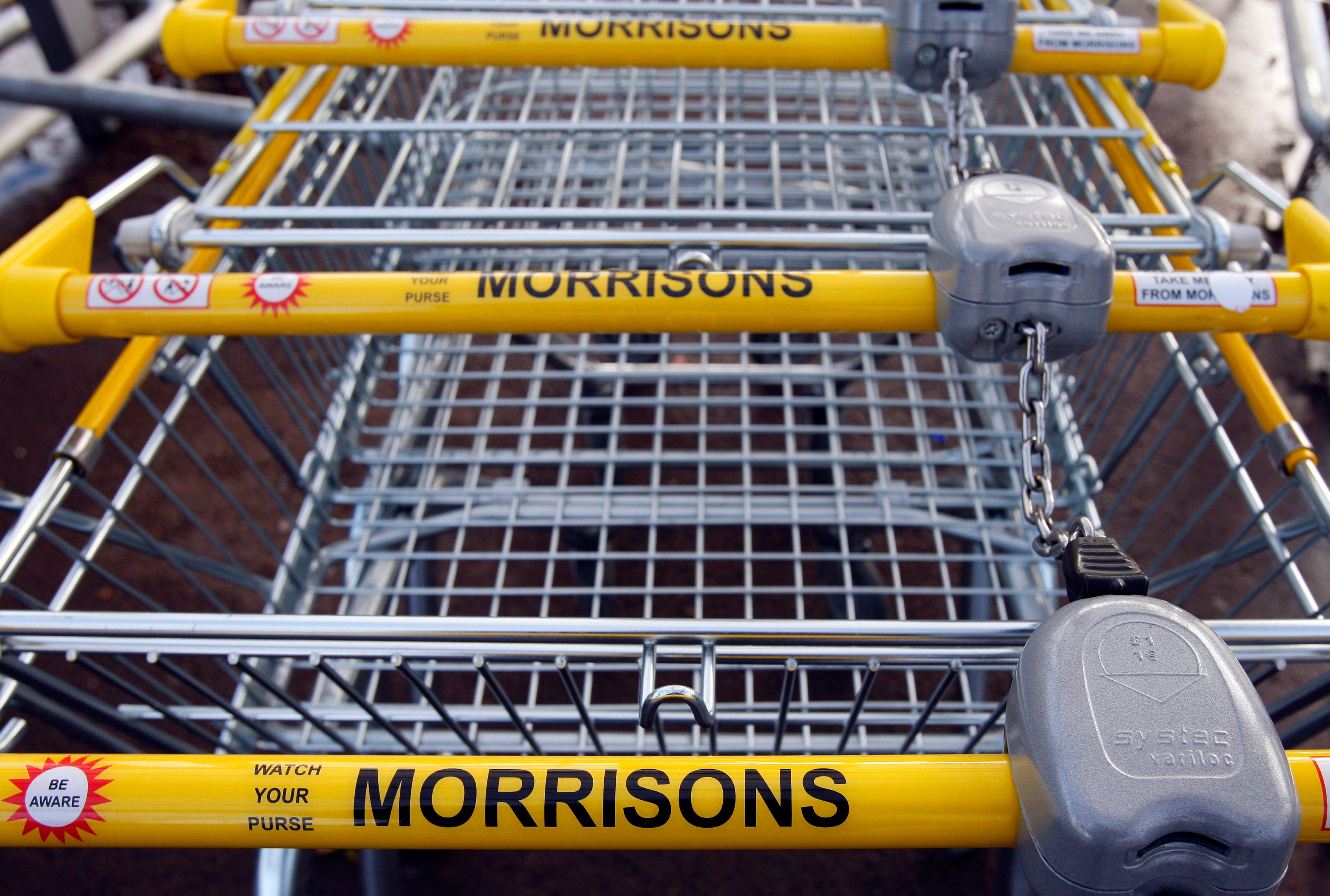US private equity firm wins auction for Britain's Morrisons
An American private equity group has narrowly won the battle to buy British supermarket chain Morrisons following a dramatic auction for the company

Your support helps us to tell the story
From reproductive rights to climate change to Big Tech, The Independent is on the ground when the story is developing. Whether it's investigating the financials of Elon Musk's pro-Trump PAC or producing our latest documentary, 'The A Word', which shines a light on the American women fighting for reproductive rights, we know how important it is to parse out the facts from the messaging.
At such a critical moment in US history, we need reporters on the ground. Your donation allows us to keep sending journalists to speak to both sides of the story.
The Independent is trusted by Americans across the entire political spectrum. And unlike many other quality news outlets, we choose not to lock Americans out of our reporting and analysis with paywalls. We believe quality journalism should be available to everyone, paid for by those who can afford it.
Your support makes all the difference.An American private equity group saw off a rival to narrowly win the battle to buy British supermarket chain Morrisons following a dramatic auction Saturday for the company.
Britain s Takeover Panel said New York-based Clayton Dubilier & Rice (CD&R) offered 287 pence for each Morrisons share, just a penny more than the offer from Fortress, which is backed by Japanese bank Softbank
The winning offer values Morrisons at almost 7 billion pounds ($9.5 billion) and will be voted on by shareholders on Oct. 19.
Morrisons is Britain’s fourth-largest food retailer, employing about 110,000 people in nearly 500 stores and over 300 gas stations.
CD&R is one of the most firmly established investors in the sector and has been advised by Terry Leahy, the former boss of Tesco, Britain’s biggest supermarket chain, over the past 10 years.
It first made an approach for the supermarket in June, leading to speculation the sector was ripe for private equity takeovers. Fortress then made an offer of 6.3 billion pounds in July, revising it up to 6.7 billion a month later, which the Morrisons board accepted. Later in August, CD&R returned with an increased bid of 7 billion pounds, which led to the board withdrawing its support for the Fortress bid and throwing its weight behind the higher offer.
But because neither side made a formal bid, the Takeover Panel launched an auction process. Both sides agreed beforehand that all bids would be at a fixed cash price and could not include stakes in other businesses or dividends to shareholders.
Both sides were keen to stress they want to uphold the supermarket’s values and attempted to ward off suggestions they will start selling off vast swathes of the company’s property assets.
Private equity firms typically acquire undervalued companies and then look for ways to cut costs and boost profits before selling them at a profit. British assets are widely considered to be cheaper than they otherwise would have been as a result of Britain’s departure from the European Union and the coronavirus pandemic.
The Usdaw union, which represents many workers at Morrisons, is seeking discussions with the prospective owners over their plans.
“We have heard the assurances already given and welcome the constructive working relationship that Usdaw has experienced so far," said Joanne McGuinness, Usdaw national officer.
Morrisons was founded in 1899 as an egg and butter stall in a market in the north England city of Bradford. It steadily expanded and became a publicly listed business in 1967. It expanded further in 2004 with the acquisition of rival Safeway, a move that grew its presence in the south of England.
The firm is now largely owned by a raft of institutional shareholders, including Silchester International, Columbia, Blackrock and Schroders.